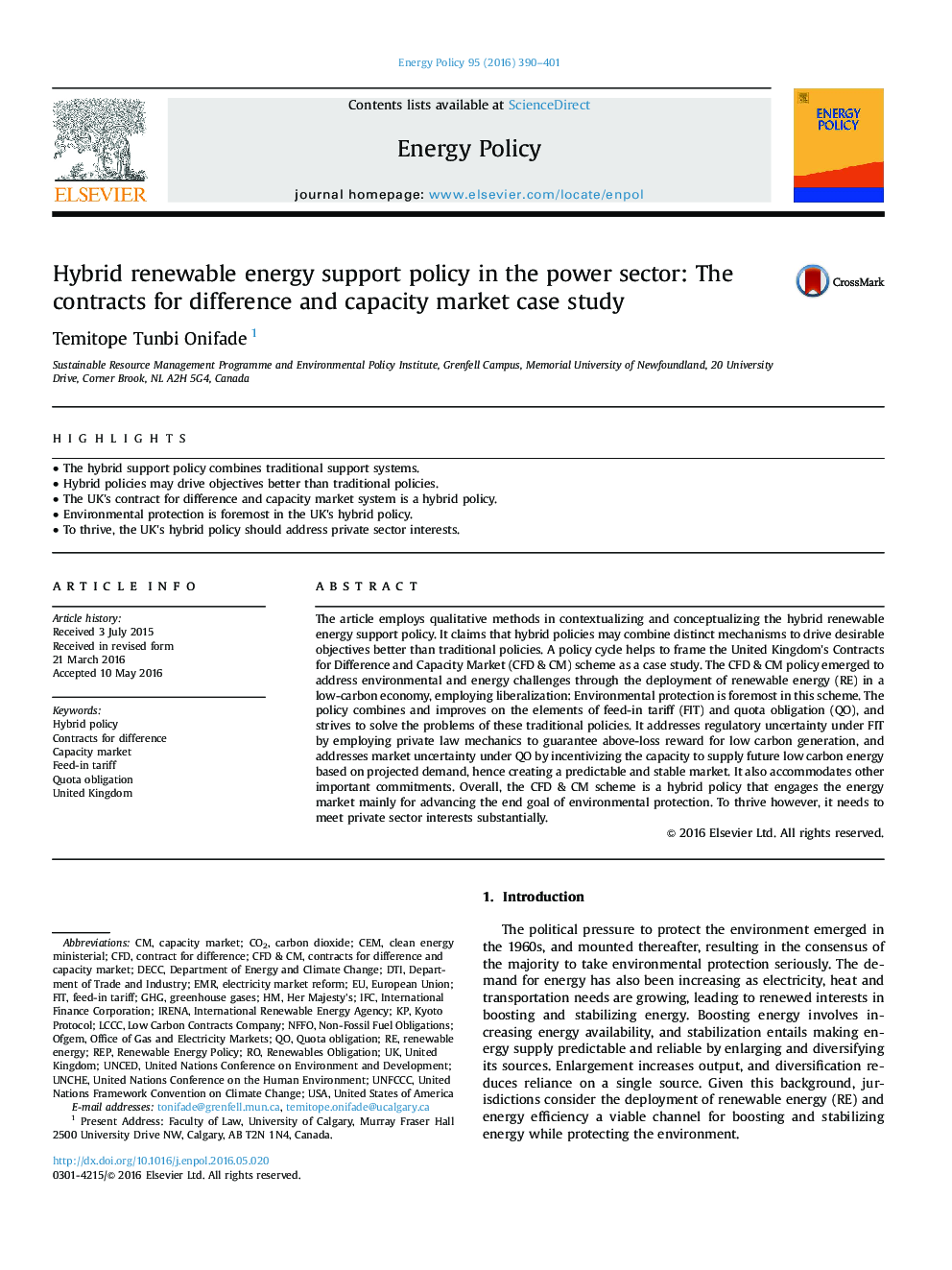| Article ID | Journal | Published Year | Pages | File Type |
|---|---|---|---|---|
| 7399346 | Energy Policy | 2016 | 12 Pages |
Abstract
The article employs qualitative methods in contextualizing and conceptualizing the hybrid renewable energy support policy. It claims that hybrid policies may combine distinct mechanisms to drive desirable objectives better than traditional policies. A policy cycle helps to frame the United Kingdom's Contracts for Difference and Capacity Market (CFD & CM) scheme as a case study. The CFD & CM policy emerged to address environmental and energy challenges through the deployment of renewable energy (RE) in a low-carbon economy, employing liberalization: Environmental protection is foremost in this scheme. The policy combines and improves on the elements of feed-in tariff (FIT) and quota obligation (QO), and strives to solve the problems of these traditional policies. It addresses regulatory uncertainty under FIT by employing private law mechanics to guarantee above-loss reward for low carbon generation, and addresses market uncertainty under QO by incentivizing the capacity to supply future low carbon energy based on projected demand, hence creating a predictable and stable market. It also accommodates other important commitments. Overall, the CFD & CM scheme is a hybrid policy that engages the energy market mainly for advancing the end goal of environmental protection. To thrive however, it needs to meet private sector interests substantially.
Keywords
CEMContract for DifferenceDTILCCCEMRUNCEDUNFCCCUnited Nations Conference on Environment and DevelopmentDECCOffice of Gas and Electricity MarketsGHGIFCIRENANFFOInternational Renewable Energy AgencyEuropean UnionElectricity market reformRenewable energyUnited States of AmericaUSACapacity marketFeed-in tariffRenewables ObligationCFDCarbon dioxideRenewable energy policyOfgemFITRepDepartment of Energy and Climate ChangeUnited KingdomKyoto ProtocolCO2United nations framework convention on climate changeGreenhouse gases
Related Topics
Physical Sciences and Engineering
Energy
Energy Engineering and Power Technology
Authors
Temitope Tunbi Onifade,
